Exploring South Caicos
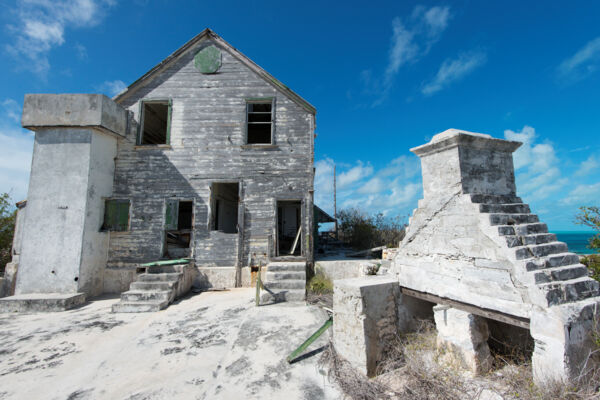
South Caicos offers a unique experience to visitors. Unlike the other islands in the Turks and Caicos and much of the Caribbean, South Caicos is essentially untouched by the tourism industry. There aren’t many established tourist attractions or water sports operators, or gift shops and large grocery stores for that matter.
South Caicos does have several scenic beaches, yet they offer a bit more of a windswept atmosphere than the famous coasts of Providenciales, and are not as quite as good for swimming as many of the other top beaches in the country due to surf conditions and rocks.
It is possible to see much of South Caicos in one day, although two or three days will allow for a much more relaxed pace. It will probably be necessary to have a rental car, as some of the scenic areas can be as far as 5 miles (8 km) from Cockburn Harbour, which is the main settlement on the island.
Cockburn Harbour
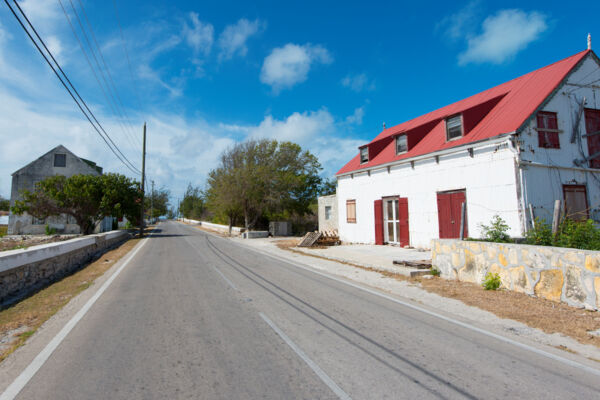
The main settlement of Cockburn Harbour really doesn’t offer much to do other than chatting with residents or watching the fishing boats come in.
Due to being one of the oldest settlements in the country and unchanged much by recent development, Cockburn Harbour has remnants of many buildings from the past days of salt production and plantations. The most picturesque cemetery in the country is found off the southeast side of the town on Tucker Point, outside of town. Another spot that has excellent views and is definitely worth the visit is the small light tower near the Ocean & Beach Resort.
The scuba diving around South Caicos is excellent, although unfortunately the island’s only dive operation was completely destroyed by Hurricane Ike in 2008. At this time, the only option for diving the reefs of South Caicos is the costly arrangement of a custom excursion from Grand Turk or Salt Cay. The deep sea, reef, and flat fishing around South Caicos is also quite good, and bonefishing is the primary tourism draw to the island.
Today, the main income for South Caicos comes from the small-scale fishing industry, and the harbor infrastructure that supports it is the busiest region of the island. Later in the day, small fishing boats bring in fish, conch, and lobster, which are processed at the Caicos Seafood fish processing plant.
Exploring
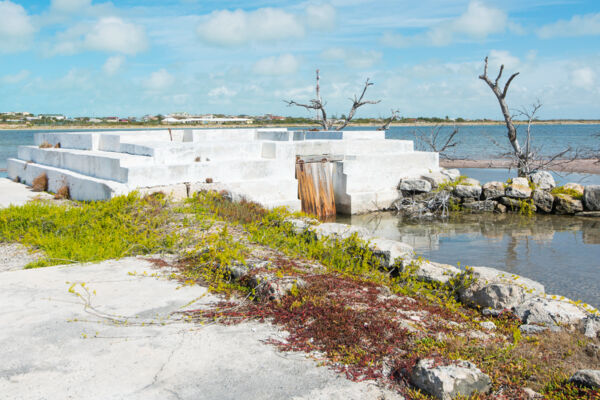
Other than simply relaxing on the beach, exploring the coasts, sea cliffs, salinas, and streets of South Caicos will likely be the main occupation of visitors.
Due to various ups and downs in the economy in South Caicos over the last century, many abandoned buildings and ruins can be seen. These vary from colonial-era residences and warehouses, to more modern constructs.
Along with Grand Turk and Salt Cay, South Caicos had been a salt-producing island. Miles of small stone dividing walls and channels fill the central salina, along with remains of windmills and water gates. The Boiling Hole formation is also located in the main salina. This underwater subterranean tidal passage connects to the ocean, and was used to fill the salt pans during the production days.
Another interesting South Caicos feature is the abandoned US Coast Guard LORAN Station on the north end of the island. This site was constructed in 1959 and was part of the low-frequency radio signal navigation system that was eventually replaced largely by satellite GPS. Spectacular views of the uninhabited cays north of South Caicos can be seen from the high ground here.
Nature
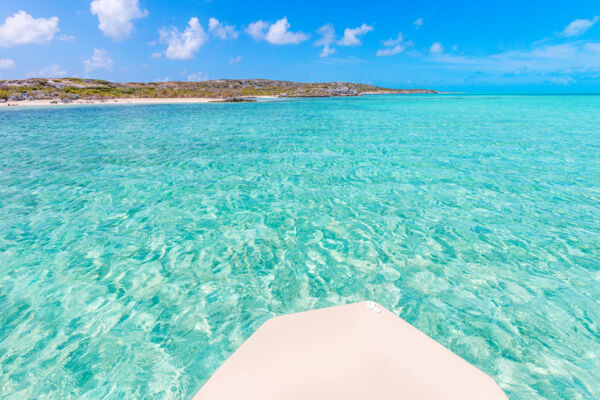
South Caicos offers some truly breathtaking landscapes. Much of the eastern coastline of South Caicos consists of soft dune–like cliffs, a little different from the harder limestone cliffs of the other Caicos Islands.
Long Cay, an uninhabited National Park island, is found a short boat trip from Cockburn Harbour and features sheltered beaches with spectacular crystal-clear ocean water and the unique Turks and Caicos Rock Iguana.
The secluded cays to the north of South Caicos, including Plandon Cay, Middle Creek Cay, McCartney Cay, and Hog Cay, hide a wealth of incredible sights, beaches, wildlife, and historical ruins. A boat charter through these amazing islands is an unforgettable experience.
Salt Ponds
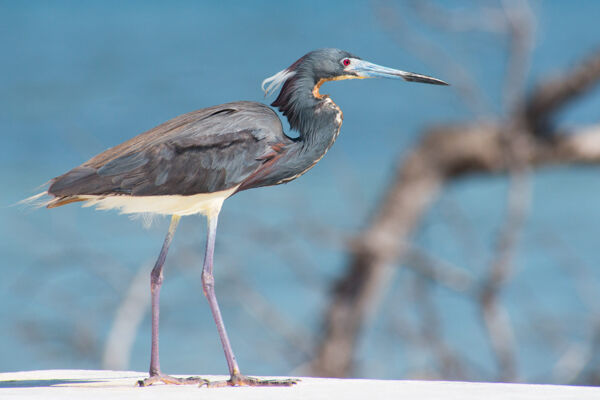
The salinas and salt pans on South Caicos are another interesting feature. More extensive than the salt-gathering infrastructures on Grand Turk and Salt Cay, South Caicos has miles of low dividing walls, gates, windmills, and the unique Boiling Hole.
The remains of the salt works are best accessed from the Cockburn Harbour area, and it’s possible to walk along the top of the walls out to the ruins of old windmills and other features.
The salinas also tend to have many of the larger wading birds such as Tricolored Herons and Reddish Egrets. Feral donkeys are also on South Caicos, although they tend to be shyer than those on Salt Cay and Grand Turk.
The East Coast
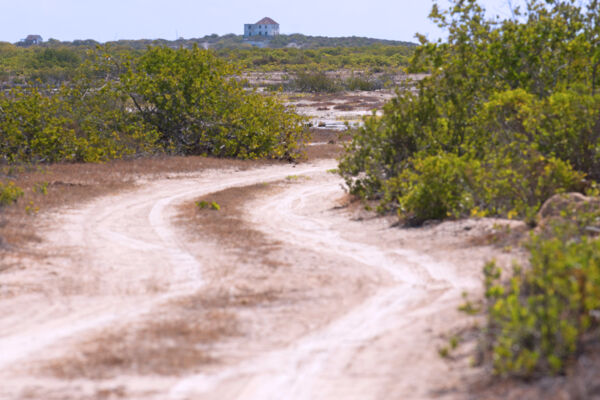
The 6-mile (9.6 km) long east coast consists of soft stone cliffs and bluffs with interspersed small beaches. Ospreys and pelicans can be seen gliding by, and during the winter humpback whales can be spotted migrating through the Turks Island Passage between South Caicos and Grand Turk.
The most visually impressive part of this coast is the southeast High Point. Reefs can be seen clearly below in the water, and the rugged Long Cay makes for a beautiful backdrop. The iconic abandoned Highlands House also stands in this area.
The hike along the bluffs here, starting at Shark Bay (Gannaway Bay) and continuing to Highlands Bay, is one of the best routes in the country.
Plandon Cay Cut
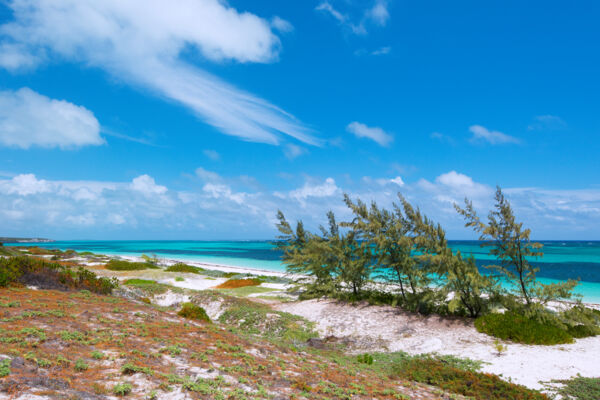
Off the north point of South Caicos is some of the most impressive scenery in the country. At Plandon Cay Cut is a breathtaking vista, with the shallow Caicos Banks to the west, and small cays and East Caicos to the north. If you look carefully, you can see the walls and chimney of a plantation house on the distant Hog Cay, as well as a sunken sailboat.
Also at the north point is the derelict US Coast Guard LORAN Station. Before modern satellite GPS, these bases would radio wave navigation signals for ships and aircraft.
Getting to some of the coastline can be a little difficult in some areas due to limited and poor-condition road access. Be prepared to walk a bit and bring plenty of water.
As mentioned, you’ll likely want a rental car for exploring, as distances can be too great for walking or cycling.



